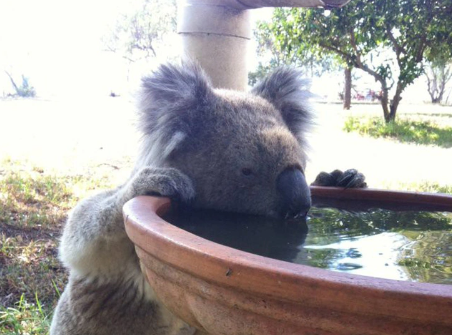
Accordingly, when the number of Koala bears decreases seriously, they will no longer play an important role in the ecosystem, for example, the role of carnivores to balance the number of individuals of other species. “Functional extinction” also means that this species is gradually losing its ability to reproduce due to too few individuals.
According to the news site The Conversation, the main cause is human activities that destroy the natural habitat of Koala bears – eucalyptus forests (also known as eucalyptus forests). The most prominent of these are deforestation, agricultural, forestry and fishery activities, urbanization and environmental pollution.
Currently, 80% of the natural habitat of this animal species has been lost, not to mention their lives are threatened by dogs and cars on the road. According to the Australian Koala Foundation (AKF), up to 4,000 die each year from being hit by cars or bitten by dogs.
Koalas play an important role in the ecosystem thanks to their diet. They mainly eat the top leaves of eucalyptus trees, so they “prune” the tops of these trees to make the forests cooler and more exposed to sunlight.
Thus, without koalas, less sunlight will penetrate these forests, directly affecting the underground ecosystem in the forests. In addition, when koalas no longer eat leaves, the dense leaf density also increases the probability of forest fires.
Koalas are an integral part of eucalyptus forests – Photo: Flickr
AKF is calling on the Australian Prime Minister to pass the Koala Conservation Act to ban the possession, killing, and trade of koalas, as well as protect the remaining eucalyptus forests.
Currently, koalas are classified as vulnerable by the International Union for Conservation of Nature, but up to 80% of eucalyptus forests are located on private land, meaning they will soon be cleared for commercial purposes.
Business Insider quoted Deborah Tabart – AKF representative: “I know for sure that Australians care about the safety of koalas and are fed up with seeing koalas dying on the road. It’s time for the government to start showing respect for them and protecting their natural habitat.”





